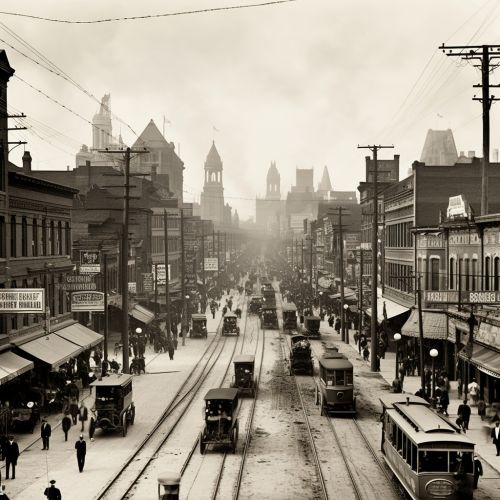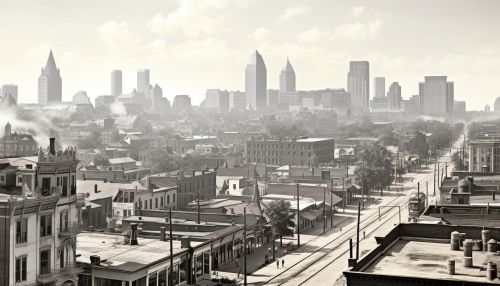Atlanta, Georgia
History
Atlanta, Georgia, has a rich and complex history that dates back to the Native American settlements in the area. The city was originally named Terminus, due to its position as the end of the Western & Atlantic railroad line. However, it was later renamed Atlanta, a feminized version of "Atlantic," in 1847.
The city played a significant role in the Civil War, serving as a major Confederate supply and communications center. The Battle of Atlanta in 1864 marked a turning point in the war, and the city's subsequent burning by Union forces under General William T. Sherman has become a symbol of the South's suffering during the conflict.


In the post-war era, Atlanta rose from the ashes to become a regional economic hub. The city's growth was fueled by the expansion of the railroad and the establishment of numerous educational institutions, including the Georgia Tech and Emory.
The 20th century saw Atlanta become a focal point of the Civil Rights Movement, with figures like Martin Luther King Jr. leading the fight for racial equality from the city. The city also hosted the 1996 Summer Olympics, a significant event that brought international attention and spurred further development.
Geography and Climate
Located in the southeastern United States, Atlanta is situated among the foothills of the Appalachian Mountain range. The city's topography is characterized by rolling hills and dense tree coverage, earning it the nickname "the city in a forest".
Atlanta's climate is classified as humid subtropical, with hot, humid summers and mild, wet winters. The city experiences four distinct seasons, with a wide range of weather conditions.


Economy
Atlanta's economy is diverse and robust, with dominant sectors including logistics, professional and business services, media operations, and information technology. The city is home to the headquarters of many Fortune 500 companies, including Coca-Cola, Home Depot, and Delta.
Atlanta is also a major center for the television and film industry, with Turner Broadcasting System, Cable News Network (CNN), and Tyler Perry Studios having significant operations in the city.
The city's economy is further bolstered by its status as a transportation hub, with Hartsfield-Jackson Atlanta International Airport serving as the world's busiest airport by passenger traffic.
Culture
Atlanta is a cultural hub, with a thriving arts scene, diverse culinary offerings, and a rich musical heritage. The city is known for its contributions to hip-hop and R&B music, with artists like Outkast and T.I. hailing from Atlanta.
The city's culinary scene is a blend of southern tradition and modern innovation, with a wide array of restaurants offering everything from classic southern comfort food to cutting-edge fusion cuisine.
Atlanta is also home to numerous museums and cultural institutions, including the High Museum of Art, the Atlanta History Center, and the Martin Luther King Jr. National Historic Site.


